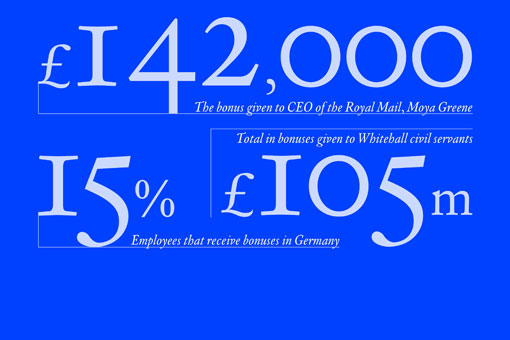Public sector bonus culture overlooked
The idea that bonuses are limited to private sector exuberance appears to be something of a myth, as many of Europe’s public sector are also rewarded in this way

Over the years, a culture of paying out huge bonuses has become the norm in the private sector, most notably in banking, with top earners often taking home millions as a reward for a good year’s performance. However, the public sector might be thought of as having a more subdued culture with regards to bonuses. It would certainly seem that there is less of an incentive to offer them, as public sector institutions typically receive their funding from the taxpayer. Despite this, there is still a slight prevalence of bonuses in the public finance sector.
The PAHRC (Public Administration Human Resources Community) has completed a study which correlates the relative performance of workers and European public sector bonuses. It found that Italy is home to one of the strongest public sector bonus cultures, where the majority of bonuses are paid out without adequate performance reviews, leading to high payments in return for what might best be described as less than optimal performance from employees. In other EU countries, such as the UK and Germany, incentives are provided seemingly more closely tied to actual performance.
However, the bonus culture relating to public servants is under particular scrutiny in the UK, since London played host to many of the largest banking deals and bonuses during the period of rapid financial growth before 2008. It has recently been found that certain public servants have indeed been enjoying large bonuses. Civil servants in Whitehall have been found to be receiving bonuses totaling over £100m, a significant amount of money by any measure. The total of £105m is the combined total taking in many different civil servants, so it is not perhaps truly comparable to the multimillion bonuses taken by individual bankers at the height of the economic boom. However, the fact that individuals receiving these bonuses are in the public sector could be considered hypocritical at a time when governments are generally looking to make substantial cuts and savings in the public sector, in order to reduce deficits. It is also worth noting that not just banking sector civil servants receive sizeable bonuses in the UK; Moya Greene, CEO of the Royal Mail, was paid £142,000 as a bonus and this was at a time when the organisation was making losses.
Other countries in Europe also have a bonus culture; however, prominent players in the European economy tend to have a less tolerant attitude towards the paying of large bonuses in the private, let alone in the public sector. France and Germany have generally taken a harder line approach to the spread of bonus culture than the UK, which could be because London has a stronger history of being a centre for financial institutions. In Germany, fewer than 15 percent of employees receive bonus payment. Nevertheless, workers in the public sector in key European countries can and do earn extra pay as an incentive to greater performance.













